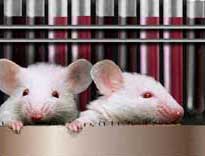Electrically stimulating specific parts of the brain using an implanted electrode can help severely depressed patients, according to two studies published this month. The findings are the latest evidence suggesting that "deep brain stimulation," a surgical therapy already widely used to treat Parkinson's disease, could be an alternative treatment for people with severe depression. Brain Electrodes Help Treat Depression
Studies suggest that deep brain stimulation could effectively treat depression.By Emily Singer
"This is a very promising therapy for severe and medically intractable depression," says Ali Rezai, a neurosurgeon at the Cleveland Clinic, in Ohio, who is involved in one of the studies. However, doctors involved in the studies caution that larger clinical trials are needed to determine how effective and long-lasting the therapy is.
Deep brain stimulation is becoming an increasingly routine treatment for Parkinson's disease and other movement disorders. A neurostimulator--similar to a heart pacemaker--is implanted under the skin of the torso and connected via a wire to an electrode implanted into a specific part of the brain. The stimulator delivers precise electrical impulses to the brain, interfering with the neural signals that underlie the troublesome motor symptoms.
After the success of the technique in treating Parkinson's, scientists have started to explore the technology's potential in treating other neurological problems, such as epilepsy, obsessive-compulsive disorder, and, most recently, depression.If successful, the therapy could provide a much needed new option for the approximately 1.8 million patients in the United States with major depression who fail to respond to medications and other therapies, including electroconvulsive therapy, a treatment that is often highly effective for depression but can also cause serious side effects, including memory loss.
In the latest study, researchers at the University of Bonn, in Germany, targeted a part of the brain often referred to as the brain's "pleasure center": the nucleus accumbens. This area, a central part of the brain's reward system, responds to pleasurable things, such as food, sex, and drugs. "A major symptom of depression is the inability to find pleasure in things the person previously found pleasurable," says Thomas Schlaepfer, the psychiatrist who led the study. "We believe that this symptom is mediated by the human reward system."
Schlaepfer and his collaborators surgically implanted electrodes into the nucleus accumbens of three severely depressed patients, all of whom had failed to respond to drugs and electroconvulsive therapy. Two of the three patients reported immediate effects when the stimulator was turned on. One remarked that he wanted to climb the steps of a local cathedral, which he did the next day. The other said she wanted to return to bowling, a favorite hobby before the onset of her depression.
To assess how well the treatment worked in the longer term, researchers turned the stimulator on and off for periods of several weeks, tracking symptoms with standard questionnaires. They found that the two patients improved when the stimulator was turned on and worsened when it was turned off. In fact, Schlaepfer says, recurring symptoms were so severe that the researchers shortened one of the "off" periods for ethical reasons.
In a second study, of 11 patients, presented last week at the American Association of Neurological Surgeons meeting in Washington, D.C., scientists from the Cleveland Clinic and Brown University found that after a year of treatment with deep brain stimulation, about half the patients showed noticeable improvement, and about a third improved so significantly that they no longer met the diagnostic criteria for depression. "It's very encouraging, especially given how chronically ill and highly resistant [to medication] the patients were," says Ben Greenberg, a psychiatrist at Brown Medical School and Butler Hospital, in Rhode Island, who was involved in the study.
Still, experts urge caution in interpreting the results. For one thing, says Karl Deisseroth, a psychiatrist at Stanford who studies experimental treatments for depression, "no placebo-controlled trials have been done" to confirm how well the therapy works on a larger population.
Indeed, larger studies are on their way. A multicenter study will begin this summer at various facilities in the United States, sponsored by Medtronic Neurological, a medical-device company that makes systems for deep brain stimulation. Another trial targeting a different part of the brain is also in the works, sponsored by Advanced Neuromodulation Systems, also a medical-device company.
It's not yet clear how deep brain stimulation improves symptoms of depression. "We believe it has a more direct effect on the brain, as compared to drugs," says Schlaepfer. Different studies in humans have targeted different parts of the brain, all of which have been implicated in depression in different ways. Scientists say that more research is needed to figure out the role of each region, as well as the biological changes that underlie the antidepressant effects.
Refs
HOME
Medtronic
Hypermotivation
Deep Brain Stimulation
Refractory depression/DBS
The Orgasm Command-Center
Wireheads and Wireheading in Science Fiction
Pleasure Evoked by Electrical Stimulation of the Brain
dave@bltc.com
